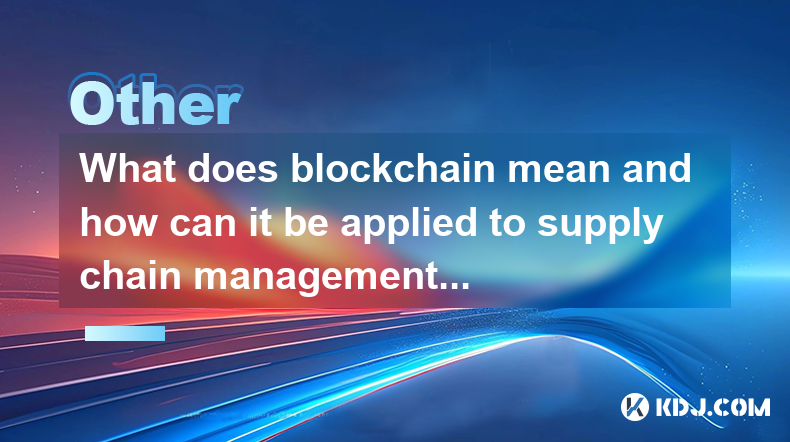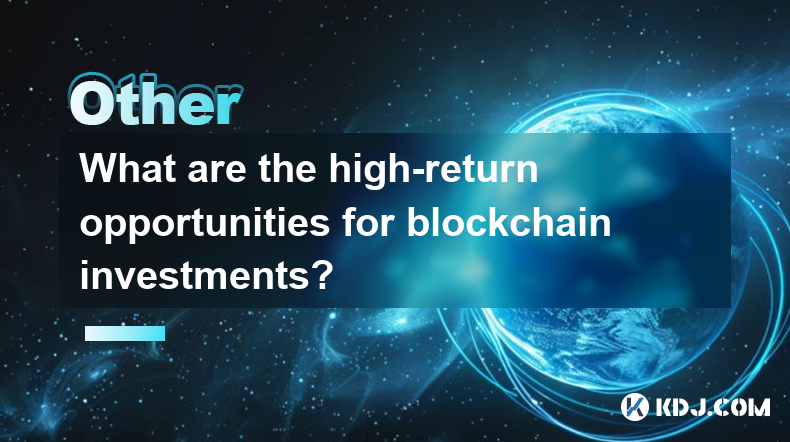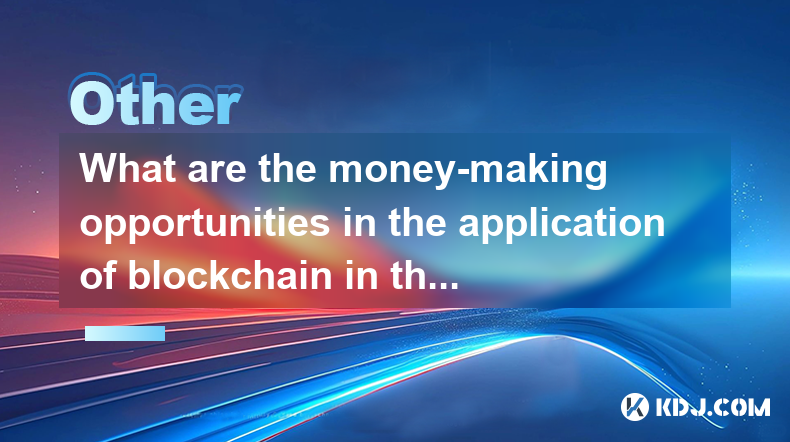-
 Bitcoin
Bitcoin $77,174.4332
-6.66% -
 Ethereum
Ethereum $1,513.9694
-15.12% -
 Tether USDt
Tether USDt $0.9994
0.00% -
 XRP
XRP $1.7976
-13.35% -
 BNB
BNB $546.9143
-6.92% -
 USDC
USDC $1.0000
0.01% -
 Solana
Solana $102.1830
-13.15% -
 TRON
TRON $0.2263
-5.32% -
 Dogecoin
Dogecoin $0.1407
-13.87% -
 Cardano
Cardano $0.5506
-13.28% -
 UNUS SED LEO
UNUS SED LEO $8.8923
-1.36% -
 Toncoin
Toncoin $3.0651
-6.63% -
 Chainlink
Chainlink $10.9654
-12.57% -
 Stellar
Stellar $0.2233
-10.13% -
 Avalanche
Avalanche $15.7971
-7.68% -
 Shiba Inu
Shiba Inu $0.0...01102
-8.27% -
 Sui
Sui $1.8598
-12.98% -
 MANTRA
MANTRA $6.1562
-1.39% -
 Hedera
Hedera $0.1389
-10.82% -
 Polkadot
Polkadot $3.4511
-12.05% -
 Dai
Dai $1.0001
0.02% -
 Bitcoin Cash
Bitcoin Cash $265.0446
-9.69% -
 Litecoin
Litecoin $68.1930
-15.63% -
 Ethena USDe
Ethena USDe $0.9987
-0.03% -
 Bitget Token
Bitget Token $3.9224
-11.37% -
 Pi
Pi $0.5642
-11.92% -
 Monero
Monero $195.3244
-8.26% -
 Hyperliquid
Hyperliquid $10.5437
-7.47% -
 Uniswap
Uniswap $4.9997
-12.42% -
 OKB
OKB $49.8749
-7.33%
What does blockchain mean and how can it be applied to supply chain management?
Blockchain enhances supply chain transparency and security, enabling real-time tracking and reducing fraud through its decentralized, immutable ledger system.
Apr 06, 2025 at 03:21 am

Blockchain technology is a decentralized, distributed ledger that records transactions across numerous computers. It ensures that each transaction is secure, transparent, and immutable. In essence, blockchain is a chain of blocks where each block contains a list of transactions. These blocks are linked using cryptographic methods, making it nearly impossible to alter past transactions without consensus from the network. This technology was initially developed for Bitcoin but has since found applications in various sectors, including supply chain management.
Understanding Blockchain Technology
At its core, blockchain is a database that is managed by a network of computers rather than a single entity. This decentralized nature eliminates the need for intermediaries, reducing the risk of fraud and errors. Each block in the chain contains a cryptographic hash of the previous block, a timestamp, and transaction data. Once a block is added to the chain, it cannot be altered, ensuring the integrity of the data. This feature makes blockchain particularly useful for maintaining a tamper-proof record of transactions.
Blockchain operates on a consensus mechanism, where multiple nodes in the network must agree on the validity of transactions before they are added to the ledger. This consensus can be achieved through various methods, such as Proof of Work (PoW) or Proof of Stake (PoS). PoW requires nodes to solve complex mathematical problems, while PoS relies on the amount of cryptocurrency a node holds. Both methods ensure that the network remains secure and decentralized.
Benefits of Blockchain in Supply Chain Management
Blockchain technology offers several advantages when applied to supply chain management. One of the primary benefits is increased transparency. Every participant in the supply chain can access the same information, reducing the likelihood of discrepancies and misunderstandings. This transparency also helps in tracking the origin and journey of products, ensuring that they meet regulatory standards and ethical practices.
Another significant advantage is enhanced security. The decentralized nature of blockchain makes it resistant to hacking and fraud. Since the data is distributed across multiple nodes, there is no single point of failure. Additionally, the immutability of the ledger ensures that once a transaction is recorded, it cannot be altered, providing a reliable audit trail.
Blockchain also improves efficiency in supply chain operations. By automating processes and reducing the need for intermediaries, it can significantly cut down on time and costs. Smart contracts, which are self-executing contracts with the terms directly written into code, can automate tasks such as payment processing and compliance checks, further streamlining operations.
Applications of Blockchain in Supply Chain Management
Blockchain can be applied to various aspects of supply chain management. One of the most common applications is product tracking and traceability. By recording every step of a product's journey on the blockchain, companies can ensure that they have a complete and accurate record of its origin, movement, and final destination. This is particularly useful for industries such as food and pharmaceuticals, where traceability is crucial for safety and compliance.
Another application is smart contracts. These can automate various supply chain processes, such as ordering, payment, and delivery. For example, a smart contract can automatically trigger a payment once a shipment is confirmed to have reached its destination, reducing the need for manual intervention and speeding up the process.
Blockchain can also be used for inventory management. By maintaining a real-time, tamper-proof record of inventory levels, companies can better manage their stock and reduce the risk of overstocking or stockouts. This can lead to more efficient operations and lower costs.
Case Studies of Blockchain in Supply Chain Management
Several companies have successfully implemented blockchain in their supply chain operations. One notable example is Walmart, which has used blockchain to improve the traceability of its food products. By partnering with IBM, Walmart developed a blockchain-based system that allows it to track the journey of food items from farm to store. This has significantly reduced the time it takes to trace the origin of products, enhancing food safety and compliance.
Another example is Maersk, the world's largest shipping company. Maersk, in collaboration with IBM, developed TradeLens, a blockchain platform that digitizes the supply chain process. TradeLens allows all parties involved in a shipment to access real-time data, improving efficiency and reducing delays. The platform has been adopted by numerous companies and has significantly streamlined global trade operations.
De Beers, the diamond company, has also implemented blockchain to enhance the traceability of its diamonds. By recording the journey of each diamond on the blockchain, De Beers can ensure that its diamonds are conflict-free and meet ethical standards. This has increased consumer trust and improved the company's reputation.
Challenges and Considerations
While blockchain offers numerous benefits for supply chain management, there are also challenges to consider. One of the main challenges is scalability. As the number of transactions on the blockchain increases, the network can become slower and more expensive to operate. This can be a significant issue for large supply chains that handle millions of transactions daily.
Another challenge is integration. Implementing blockchain requires significant changes to existing systems and processes. Companies must invest in new technology and train their staff, which can be time-consuming and costly. Additionally, there may be resistance from stakeholders who are accustomed to traditional methods.
Regulatory compliance is also a consideration. While blockchain can help companies meet regulatory requirements, it must be implemented in a way that complies with existing laws and regulations. This can be complex, especially in industries that are heavily regulated, such as pharmaceuticals and finance.
Future Prospects of Blockchain in Supply Chain Management
The future of blockchain in supply chain management looks promising. As technology continues to evolve, it is likely that more companies will adopt blockchain to improve their operations. Innovations such as interoperability between different blockchain networks and improved scalability solutions could further enhance the technology's applicability.
Additionally, the development of industry-specific blockchain solutions could lead to more tailored applications for different sectors. For example, the food industry could benefit from blockchain platforms specifically designed to track the origin and safety of food products, while the pharmaceutical industry could use blockchain to ensure the integrity of drug supply chains.
As more companies recognize the benefits of blockchain, we can expect to see increased collaboration and standardization within the industry. This could lead to the development of global blockchain standards that facilitate the seamless integration of blockchain technology across different supply chains.
Common Questions Related to Blockchain and Supply Chain Management
Q: What is blockchain technology?
A: Blockchain technology is a decentralized, distributed ledger that records transactions across numerous computers. It ensures that each transaction is secure, transparent, and immutable. It was initially developed for Bitcoin but has since found applications in various sectors, including supply chain management.
Q: How does blockchain improve transparency in supply chain management?
A: Blockchain improves transparency by providing a tamper-proof record of transactions that all participants in the supply chain can access. This ensures that everyone has the same information, reducing the likelihood of discrepancies and misunderstandings. It also helps in tracking the origin and journey of products, ensuring they meet regulatory standards and ethical practices.
Q: What are smart contracts and how are they used in supply chain management?
A: Smart contracts are self-executing contracts with the terms directly written into code. In supply chain management, they can automate various processes such as ordering, payment, and delivery. For example, a smart contract can automatically trigger a payment once a shipment is confirmed to have reached its destination, reducing the need for manual intervention and speeding up the process.
Q: Can you provide examples of companies using blockchain in their supply chains?
A: Yes, several companies have successfully implemented blockchain in their supply chains. Walmart uses blockchain to improve the traceability of its food products, Maersk developed TradeLens to digitize the supply chain process, and De Beers uses blockchain to enhance the traceability of its diamonds.
Q: What are the main challenges of implementing blockchain in supply chain management?
A: The main challenges include scalability, as the network can become slower and more expensive with increased transactions; integration, which requires significant changes to existing systems and processes; and regulatory compliance, ensuring that blockchain implementation meets existing laws and regulations.
Q: What is the future of blockchain in supply chain management?
A: The future looks promising, with potential innovations such as interoperability between different blockchain networks, improved scalability solutions, and industry-specific blockchain solutions. Increased collaboration and standardization within the industry could lead to the development of global blockchain standards, facilitating seamless integration across different supply chains.
Disclaimer:info@kdj.com
The information provided is not trading advice. kdj.com does not assume any responsibility for any investments made based on the information provided in this article. Cryptocurrencies are highly volatile and it is highly recommended that you invest with caution after thorough research!
If you believe that the content used on this website infringes your copyright, please contact us immediately (info@kdj.com) and we will delete it promptly.
- XRP Analysis: What the Lower Timeframes Tell Us
- 2025-04-07 21:35:12
- Ozak AI (OZAK) Price Prediction: Can It Hit $1?
- 2025-04-07 21:35:12
- Cryptocurrency prices sank early Monday (April 7) in Asia, collateral damage in America's trade war.
- 2025-04-07 21:30:12
- Meme Projects Like Dogecoin (DOGE), Shiba Inu (SHIB), and Bonk (BONK)
- 2025-04-07 21:30:12
- HashBeat App: Top Regulated Crypto Cloud Mining Platform in 2025 and Offers Free Bitcoin Mining Rewards with Daily Payouts
- 2025-04-07 21:25:12
- Shiba Inu (SHIB) Price Prediction: Will the Memecoin Bounce Back?
- 2025-04-07 21:25:12
Related knowledge

Is the ranking of Chinese blockchain apps real and reliable?
Apr 04,2025 at 09:01pm
The ranking of Chinese blockchain apps has become a topic of interest for many in the cryptocurrency community, as it provides insights into the popularity and adoption of blockchain technology within China. However, the reliability and authenticity of these rankings are often questioned. This article aims to delve into the factors that influence these ...

What are the future development trends of blockchain game development?
Apr 03,2025 at 05:00am
Blockchain technology has revolutionized various industries, and gaming is no exception. As we look to the future, several trends are set to shape the development of blockchain games. These trends not only promise to enhance the gaming experience but also to integrate blockchain technology more seamlessly into the gaming ecosystem. Let's explore these t...

What are the high-return opportunities for blockchain investments?
Apr 05,2025 at 02:35pm
Blockchain technology has revolutionized the financial world, offering numerous high-return investment opportunities. These opportunities span various sectors within the cryptocurrency ecosystem, including cryptocurrencies, decentralized finance (DeFi), non-fungible tokens (NFTs), and blockchain startups. Each of these areas presents unique risks and re...

What are the maintenance costs of blockchain system development?
Apr 03,2025 at 06:07pm
The maintenance costs of blockchain system development are multifaceted and depend on various factors. These costs can include technical maintenance, security updates, infrastructure expenses, and personnel costs. Understanding these elements is crucial for anyone planning to develop or maintain a blockchain system. Technical MaintenanceTechnical mainte...

What are the money-making models of blockchain games?
Apr 04,2025 at 02:00pm
Blockchain games have emerged as a revolutionary way for players to earn real money while enjoying their favorite pastime. These games leverage the power of blockchain technology to create unique money-making models that benefit both the players and the developers. In this article, we will explore the various money-making models of blockchain games and ...

What are the money-making opportunities in the application of blockchain in the field of Internet of Things?
Apr 05,2025 at 10:35pm
The integration of blockchain technology with the Internet of Things (IoT) presents numerous money-making opportunities. Blockchain, with its decentralized and secure nature, can revolutionize how IoT devices interact, manage data, and conduct transactions. This article will explore various avenues where entrepreneurs, developers, and investors can capi...

Is the ranking of Chinese blockchain apps real and reliable?
Apr 04,2025 at 09:01pm
The ranking of Chinese blockchain apps has become a topic of interest for many in the cryptocurrency community, as it provides insights into the popularity and adoption of blockchain technology within China. However, the reliability and authenticity of these rankings are often questioned. This article aims to delve into the factors that influence these ...

What are the future development trends of blockchain game development?
Apr 03,2025 at 05:00am
Blockchain technology has revolutionized various industries, and gaming is no exception. As we look to the future, several trends are set to shape the development of blockchain games. These trends not only promise to enhance the gaming experience but also to integrate blockchain technology more seamlessly into the gaming ecosystem. Let's explore these t...

What are the high-return opportunities for blockchain investments?
Apr 05,2025 at 02:35pm
Blockchain technology has revolutionized the financial world, offering numerous high-return investment opportunities. These opportunities span various sectors within the cryptocurrency ecosystem, including cryptocurrencies, decentralized finance (DeFi), non-fungible tokens (NFTs), and blockchain startups. Each of these areas presents unique risks and re...

What are the maintenance costs of blockchain system development?
Apr 03,2025 at 06:07pm
The maintenance costs of blockchain system development are multifaceted and depend on various factors. These costs can include technical maintenance, security updates, infrastructure expenses, and personnel costs. Understanding these elements is crucial for anyone planning to develop or maintain a blockchain system. Technical MaintenanceTechnical mainte...

What are the money-making models of blockchain games?
Apr 04,2025 at 02:00pm
Blockchain games have emerged as a revolutionary way for players to earn real money while enjoying their favorite pastime. These games leverage the power of blockchain technology to create unique money-making models that benefit both the players and the developers. In this article, we will explore the various money-making models of blockchain games and ...

What are the money-making opportunities in the application of blockchain in the field of Internet of Things?
Apr 05,2025 at 10:35pm
The integration of blockchain technology with the Internet of Things (IoT) presents numerous money-making opportunities. Blockchain, with its decentralized and secure nature, can revolutionize how IoT devices interact, manage data, and conduct transactions. This article will explore various avenues where entrepreneurs, developers, and investors can capi...
See all articles





















































































